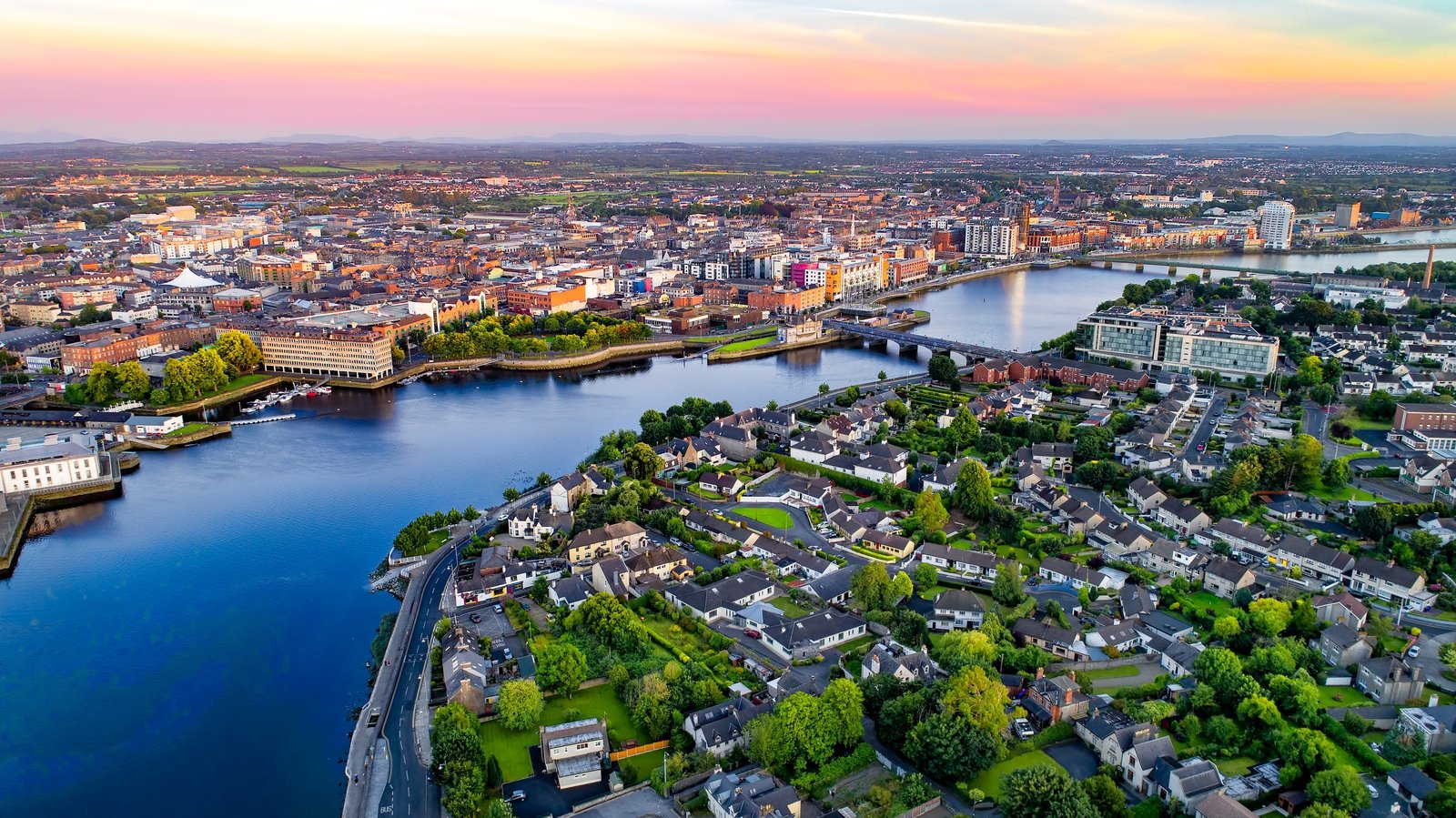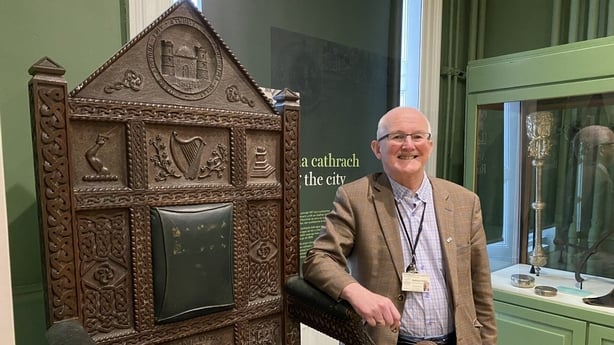Limerick prepares to vote for directly elected mayor

On the same day as the local and European elections, the people of Limerick will have the distinction of being the first – and so far only – citizens in Ireland to vote for a mayor.
Limerick has one of the oldest mayoralties in Ireland dating back to 1197. Around 600 people have held the office since, but none were directly elected.
Dr Matthew Potter, Curator of Limerick Museum puts it into historical context; “The mayoralty was 300 years in existence by the time Columbus discovered America, so that gives you an idea of it’s incredible longevity”.
Fast forward to May 2019, when the people of Cork, Waterford and Limerick voted in a plebiscite on whether to have a directly elected mayor.
Only Limerick voted in favour of creating such a role, which will give significant powers to the person elected.
However, the clock is now counting down to election day and the race for the office of mayor hasn’t really kicked off. There’s growing concern that this could be a missed opportunity for the county.
“There is a lot of ambiguity around it,” said Sean Golden, Chief Economist with Limerick Chamber. “I think we could definitely do a better job in terms of letting people know the gravitas of the role. People are mostly positive about it. I think a lot of people want the right candidate to go, but we all have to do a better job in informing people that this is such an important and pivotal role that’s going to happen in Ireland for the first time.”
Mr Golden said it is imperative that this local government reform is successful, describing it as a “test case” for other cities and other counties.
“The mayor will have a lot to report on, they will have a lot of feedback to give government in terms of how the office is working, how it’s interacting with government departments, the local authority so the Government of the day would be very wise to listen to the mayor to see how it’s running, just so it can be effectively implemented in other areas in Ireland.”
Under the legislation, the mayor will take on a number of executive functions in areas such as strategic development, housing and building, road transport, and environmental services.

“It’s the first time we are injecting a democratic mandate into the local level of politics and that’s not something we’ve done very much of, we’ve had a very centralised system so now you’ll have a person who’ll actually have a mandate to speak on behalf of the people of Limerick to push for an agenda,” said Professor Maura Adshead, who, along with her team in the Department of Politics and Public Administration at the University of Limerick conducted a public consultation across the county.
Before the terms of the post were established, people were asked what they wanted from a mayor, “and no surprises, they wanted somebody to make the local authority work harder, they wanted more housing, they wanted more amenities, more services and more safety”.
There was some concern when the proposition of a directly elected mayor was first muted that it would be a purely ceremonial role.
“Could it have been a more powerful role? Absolutely,” Mr Golden said. “But I think it’s a good step in the right direction for where we need to be in terms of a more direct democracy in Ireland. The mayor will have a a lot of powers, not everything, they’ll have to work with the local authority councillors and CEO, but it’s a step in the right direction. They’ll be able to change a lot of things that they need to change.”
The mayor will have to meet Government Ministers on a number of occasions during the year. They will participate in a Limerick Mayoral and Government Consultative Forum along with the Minister for Housing and Local Government and other Ministers to advise the Minister on matters affecting Limerick or the performance of the mayoral function.
The only powers that are moving to the directly elected mayor are very high level strategic powers concerning transport, housing, road safety.
“The intention of this directly elected mayor is that they will bring a cohesion,” Prof Adshead said, “they will bring a voice and that they would support the role of the local authority and by being at the government table and pushing for an agenda, which will have to be negotiated because any budget that the directly elected mayor proposes has to be approved by the council. They’re not going to be able to work alone. The only way they’re going to have an effect is if they work with the council.”






